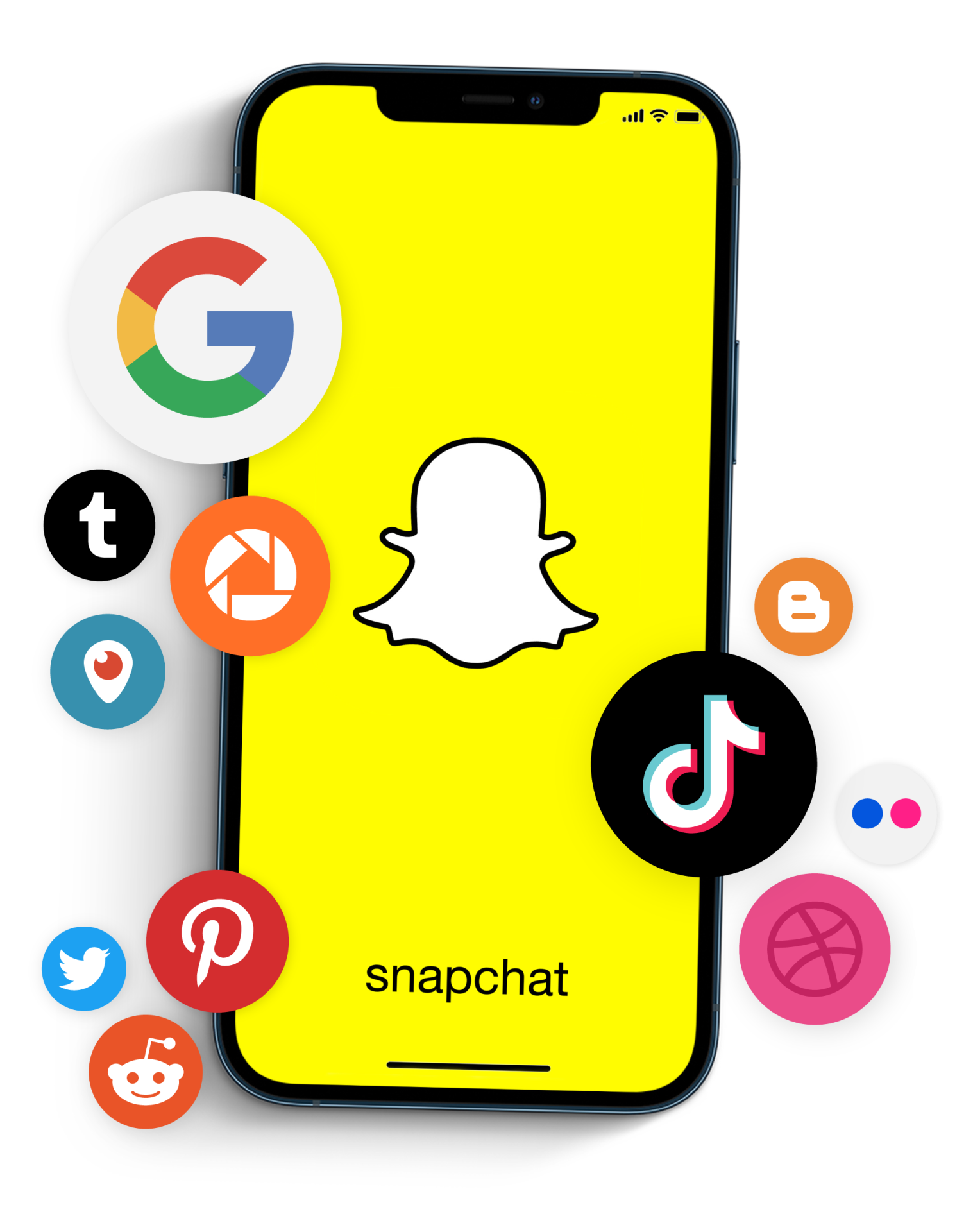The Digital Footprint: Navigating Online Content & Privacy
Table of Contents
- Introduction
- The Creator Economy: A New Frontier for Expression and Monetization
- The Unseen Shadows: Understanding Content Leaks
- The Case of Anahi Cabrales: A Digital Privacy Discussion
- The Perilous Path: Risks for Online Content Creators
- Legal and Ethical Dimensions of Non-Consensual Sharing
- Safeguarding Your Digital Presence: Best Practices for Creators
- The Role of the Audience: Promoting Responsible Digital Citizenship
- Beyond the Headlines: The Long-Term Impact of Online Content Leaks
- Conclusion
In an increasingly interconnected world, our lives are intricately woven into the fabric of the internet. From social media interactions to professional networking, and the burgeoning realm of content creation, the digital space offers unprecedented opportunities for connection, expression, and even livelihood. Yet, with these opportunities come inherent vulnerabilities, particularly concerning personal privacy and the control over one's digital footprint. The discussion around "leaked" content, often involving individuals who share their lives or creative works online, brings these critical issues to the forefront, challenging us to consider the ethical and legal boundaries of digital sharing.
The internet's vastness means that once something is online, it can be incredibly difficult to control its spread. This reality becomes particularly stark when private content, intended for a specific audience or context, finds its way into the public domain without consent. The alleged instances surrounding individuals like Anahi Cabrales, whose name has become associated with online content leaks, serve as a potent reminder of the fragility of digital privacy and the significant impact such events can have on a person's life. This article delves into the complex landscape of online content creation, the risks involved, and the broader implications for digital citizenship and personal autonomy.
The Creator Economy: A New Frontier for Expression and Monetization
The past decade has witnessed an explosion in what is now widely known as the "creator economy." Platforms like OnlyFans, Fanfix, Patreon, and others have revolutionized how individuals can monetize their passions, talents, and unique content directly from their audience. This model bypasses traditional gatekeepers, offering artists, educators, fitness instructors, and even adult content creators an unprecedented level of autonomy and direct connection with their fans. It's a vibrant ecosystem where creators can build communities, share exclusive material, and generate income, often leading to financial independence and creative freedom.
OnlyFans, for instance, has gained significant prominence as a subscription-based platform that allows creators to post various forms of content, from fitness routines and cooking tutorials to personal vlogs and adult entertainment. The platform prides itself on empowering creators to monetize their content directly, fostering a new kind of relationship between creators and their dedicated followers. Similarly, Fanfix offers a space for creators to interact with their audience and provide exclusive content, emphasizing a more direct fan-to-creator connection. These platforms are inclusive, welcoming content creators from diverse genres, and have collectively transformed the landscape of online content creation, making it a viable career path for many. The allure of direct monetization and community building is undeniable, drawing in thousands of individuals daily who seek to share their unique perspectives and creations.
The Unseen Shadows: Understanding Content Leaks
While the creator economy offers immense opportunities, it also casts long shadows, particularly concerning the phenomenon of "content leaks." In this context, a "leak" refers to the unauthorized and non-consensual dissemination of private or exclusive content, often sensitive or intimate in nature, into the public domain. This content, originally intended for a paying audience or a private circle, ends up being widely distributed on free platforms without the creator's permission. The methods through which these leaks occur are varied and often insidious. They can range from malicious hacking of personal accounts or cloud storage, to disgruntled subscribers sharing content they paid for, or even internal breaches within platforms themselves.
The core characteristic of a leak is the violation of trust and consent. When a creator shares content on a subscription platform, there's an implicit agreement that the content will remain within that controlled environment, accessible only to those who have paid for it. The moment this content is taken and shared elsewhere, particularly on free sites like Erome, Pornhub, or various "leaked" content aggregators such as ViralXXXPorn, that agreement is shattered. This act not only infringes upon the creator's intellectual property rights but also constitutes a profound invasion of privacy, with far-reaching consequences for the individual involved. It transforms private moments or exclusive work into public spectacles, stripping creators of their autonomy and control over their own digital narrative.
The Case of Anahi Cabrales: A Digital Privacy Discussion
The name Anahi Cabrales has unfortunately become synonymous with discussions around online content and alleged leaks. While specific details about her personal life remain largely private, her name has frequently appeared in conjunction with various online platforms known for sharing user-generated content, particularly in the adult entertainment sphere. Searches for "Anahi Cabrales leaked" often lead to a multitude of websites, including those like Pornhub, Erome, and ViralXXXPorn, which claim to host or link to her content, sometimes explicitly labeling it as "leaked" or "free." This widespread association highlights a critical issue in the digital age: how an individual's name can become inextricably linked to unauthorized content, regardless of their consent or control.
The public perception created by such associations can be incredibly damaging. It raises serious questions about digital identity, reputation, and the enduring nature of information once it's released onto the internet. Even if the content is removed from one platform, it can quickly resurface elsewhere, making it a relentless battle for individuals to regain control over their image. The case of Anahi Cabrales, as it is presented in public discourse, serves as a stark example of the challenges faced by anyone whose private or monetized content becomes subject to unauthorized distribution, underscoring the urgent need for robust digital privacy protections and a greater societal understanding of consent in the online realm.
Who is Anahi Cabrales? Navigating Public Information
When attempting to gather verifiable biographical information about individuals whose names are primarily associated with online content leaks, a significant challenge arises: the scarcity of publicly available, reliable personal data. In the case of Anahi Cabrales, most public mentions and search results predominantly link her name to adult content platforms and alleged "leaked" material. Unlike traditional celebrities or public figures who have official biographies, interviews, or public profiles detailing their background, career, and personal life, individuals known primarily through online content often lack such a public record.
This absence of conventional biographical data makes it difficult, if not impossible, to construct a comprehensive personal profile or table of details. Information regarding birthdate, nationality, educational background, or family life is not readily available through reputable public sources. The focus of the online discourse surrounding "Anahi Cabrales" is almost exclusively on the alleged content itself, rather than the person behind the name. This situation highlights a profound aspect of digital identity: for some, their online presence becomes overwhelmingly defined by specific content, overshadowing their personal identity and making it challenging to separate the individual from the digital narrative, especially when that narrative involves non-consensual sharing.
The Perilous Path: Risks for Online Content Creators
The journey of an online content creator, while potentially rewarding, is fraught with significant risks, particularly concerning privacy and security. Creators, by the very nature of their work, often share aspects of their lives, their bodies, or their creative output in a way that makes them uniquely vulnerable. The promise of platforms like OnlyFans and Fanfix is direct monetization and control, but this control is constantly threatened by external forces. The moment content is uploaded, even to a secure, paywalled platform, it becomes susceptible to various forms of exploitation.
One of the most immediate dangers is the unauthorized downloading and redistribution of content. As the provided data suggests, sites like Erome, Pornhub, and ViralXXXPorn are repositories where "leaked" content frequently appears, often without any compensation or consent for the original creator. The economic impact is severe; creators lose potential income from subscribers who can now access their work for free. Beyond the financial toll, the psychological and emotional damage is profound. Creators face the humiliation of having their private moments exposed, the invasion of their personal space, and the potential for harassment and cyberbullying. The reputational damage can extend beyond their online persona, affecting real-life relationships, career prospects, and mental well-being. The constant threat of an "Anahi Cabrales leaked" scenario hanging over their heads can be a source of immense anxiety, highlighting the urgent need for robust protections and a supportive environment for those navigating the complexities of the creator economy.
Legal and Ethical Dimensions of Non-Consensual Sharing
The unauthorized sharing of private or intimate content, often referred to as "revenge porn" or non-consensual intimate image (NCII) sharing, carries significant legal and ethical ramifications. Many jurisdictions worldwide have enacted specific laws to criminalize the distribution of such content without the subject's consent. These laws aim to protect victims from the severe emotional distress, reputational damage, and privacy violations that result from such acts. Penalties can range from substantial fines to imprisonment, reflecting the gravity with which these offenses are increasingly viewed. However, enforcement remains a challenge, particularly across international borders and with the rapid spread of content online.
Ethically, the act of sharing "leaked" content is a profound breach of trust and a violation of an individual's autonomy and dignity. It disregards the fundamental principle of consent, reducing a person to an object for public consumption without their permission. This extends beyond the initial act of leaking; every share, every view, and every comment on such content perpetuates the harm. The platforms themselves, like OnlyFans and Fanfix, have terms of service designed to protect creators, but the battle against unauthorized redistribution is ongoing. Reputable platforms often have takedown policies and legal teams dedicated to removing infringing content. However, the sheer volume of content and the existence of platforms specifically designed to host "leaked" material make it an uphill battle. The ethical imperative lies with every internet user to understand the harm caused by engaging with non-consensually shared content and to actively promote a culture of respect, consent, and digital responsibility.
Safeguarding Your Digital Presence: Best Practices for Creators
For anyone engaged in online content creation, particularly those sharing personal or sensitive material, proactive measures to safeguard one's digital presence are paramount. While no system is entirely foolproof against determined malicious actors, implementing robust security practices and understanding platform dynamics can significantly mitigate risks. The goal is to minimize vulnerabilities and establish clear boundaries, reducing the likelihood of becoming another instance of "Anahi Cabrales leaked" or similar unfortunate events.
Enhancing Digital Security
The foundation of digital safety lies in strong security habits. This includes:
- Strong, Unique Passwords: Use complex, unique passwords for every online account, especially for content creation platforms and associated email addresses. A password manager can help manage these securely.
- Two-Factor Authentication (2FA): Always enable 2FA wherever possible. This adds an extra layer of security, requiring a second verification step (e.g., a code from your phone) even if your password is compromised.
- Secure Connections: Be cautious when using public Wi-Fi. Always use a Virtual Private Network (VPN) to encrypt your internet traffic, especially when accessing sensitive accounts.
- Software Updates: Keep your operating system, web browsers, and all applications updated. Software updates often include critical security patches that protect against new vulnerabilities.
- Beware of Phishing: Be extremely wary of suspicious emails, messages, or links that ask for your login credentials or personal information. Verify the sender and the legitimacy of the request before clicking or providing any data.
Understanding Platform Policies
Familiarize yourself thoroughly with the terms of service and privacy policies of every platform you use, especially those where you share monetized or personal content (like OnlyFans, Fanfix, etc.). Understand:
- Content Ownership: What rights do you retain over your content once uploaded?
- Distribution Controls: What settings are available to control who sees your content?
- Reporting and Takedown Procedures: How do you report unauthorized distribution, and what is the platform's process for content removal? Knowing these procedures beforehand can save critical time if a leak occurs.
- Data Handling: How does the platform collect, store, and share your personal data?
The Importance of Digital Boundaries
Beyond technical security, setting personal digital boundaries is crucial. Consider carefully what content you are comfortable sharing, even with paying subscribers.
- Risk Assessment: Before sharing any content, especially intimate material, consider the potential consequences if it were to become public. What is your comfort level with that risk?
- Anonymity vs. Personal Brand: Decide how much of your real identity you want to tie to your online content. Some creators choose to maintain a degree of anonymity to protect their personal lives.
- Trusting Your Audience: While building a loyal fanbase is important, remember that not all subscribers may have good intentions. Be cautious about sharing overly personal details or engaging in private conversations that could be exploited.
- Separate Accounts: Consider using separate email addresses and social media accounts for your content creation activities versus your personal life.
The Role of the Audience: Promoting Responsible Digital Citizenship
While creators bear the primary responsibility for their own digital security, the audience plays an equally crucial role in shaping a safer and more ethical online environment. The demand for "leaked" content, often fueled by curiosity or malicious intent, directly contributes to the problem. Every time someone searches for, accesses, or shares non-consensually distributed material, they are perpetuating harm and tacitly endorsing the violation of privacy and consent. This is particularly true for terms like "Anahi Cabrales leaked," where the very search contributes to the visibility and perceived legitimacy of unauthorized content.
Promoting responsible digital citizenship means actively choosing not to engage with content that is known or suspected to be leaked. It means understanding that behind every image or video is a real person whose privacy and livelihood may be severely impacted. Instead of seeking out free, unauthorized versions on sites like ViralXXXPorn or Erome, ethical consumption dictates supporting creators directly through legitimate channels like OnlyFans or Fanfix. Furthermore, if you encounter leaked content, responsible action involves:
- Not Sharing: Refrain from downloading, re-uploading, or sharing the content with others.
- Reporting: Utilize the reporting mechanisms available on platforms where you encounter such content. Most reputable sites have clear procedures for reporting copyright infringement or privacy violations.
- Educating Others: Engage in conversations about digital ethics and the importance of consent with friends, family, and online communities.
Beyond the Headlines: The Long-Term Impact of Online Content Leaks
The immediate shock and outrage surrounding an online content leak, such as the alleged "Anahi Cabrales leaked" incidents, often capture headlines, but the long-term impact on the individuals involved is far more profound and enduring. For victims, the consequences extend far beyond a momentary invasion of privacy; they can fundamentally alter their lives. Psychologically, individuals often experience significant distress, including anxiety, depression, feelings of shame, betrayal, and a deep sense of powerlessness. The feeling of being exposed and having intimate moments commodified for public consumption can lead to lasting trauma, affecting self-esteem and the ability to trust others.
Professionally and socially, the repercussions can be equally devastating. A leak can damage a person's reputation, affecting current employment, future career prospects, and personal relationships. The digital footprint left by such incidents is incredibly difficult to erase, with content potentially resurfacing years later, making it a perpetual struggle for victims to move on. The legal and financial burdens of pursuing justice and attempting to remove the content can also be overwhelming. This ongoing battle highlights the urgent need for greater awareness, stronger legal frameworks, and more effective support systems for victims of non-consensual sharing. Ultimately, understanding the long-term human cost of content leaks is crucial for fostering a more empathetic and responsible digital society, one that prioritizes consent, privacy, and the well-being of every individual online.
Conclusion
The digital age, with its boundless opportunities for connection and creation, also presents complex challenges to personal privacy and control over one's online identity. The rise of the creator economy, epitomized by platforms like OnlyFans and Fanfix, has empowered countless individuals to monetize their content and connect directly with their audience. Yet, as the pervasive discussions around "Anahi Cabrales leaked" and similar incidents illustrate, this empowerment comes with inherent vulnerabilities. The unauthorized dissemination of private content, whether through hacking or malicious sharing, represents a profound breach of trust and a violation of an individual's autonomy, leading to significant psychological, financial, and reputational harm.
Navigating this intricate landscape requires a multi-faceted approach. For creators, it means adopting rigorous digital security practices, understanding platform policies, and setting clear personal boundaries regarding what they share. For the broader online audience, it demands a commitment to responsible digital citizenship: refraining from seeking out or sharing non-consensual content, supporting creators ethically, and actively reporting illicit material. The fight against content leaks is not merely a legal battle; it is an ethical imperative that calls for collective responsibility. By fostering a culture of consent, respect, and empathy online, we can work towards a digital future where creativity thrives without compromising individual privacy and dignity. Let us all strive to be part of the solution, ensuring that the digital footprint we leave behind is one of integrity and respect.

Lyra Crow Leaked - Oh Open

Remove Leaked Snapchats From All Platforms Online

sharkxbae onlyfans leaked Sharkbae Leaked OnlyFa - Download Free 3D